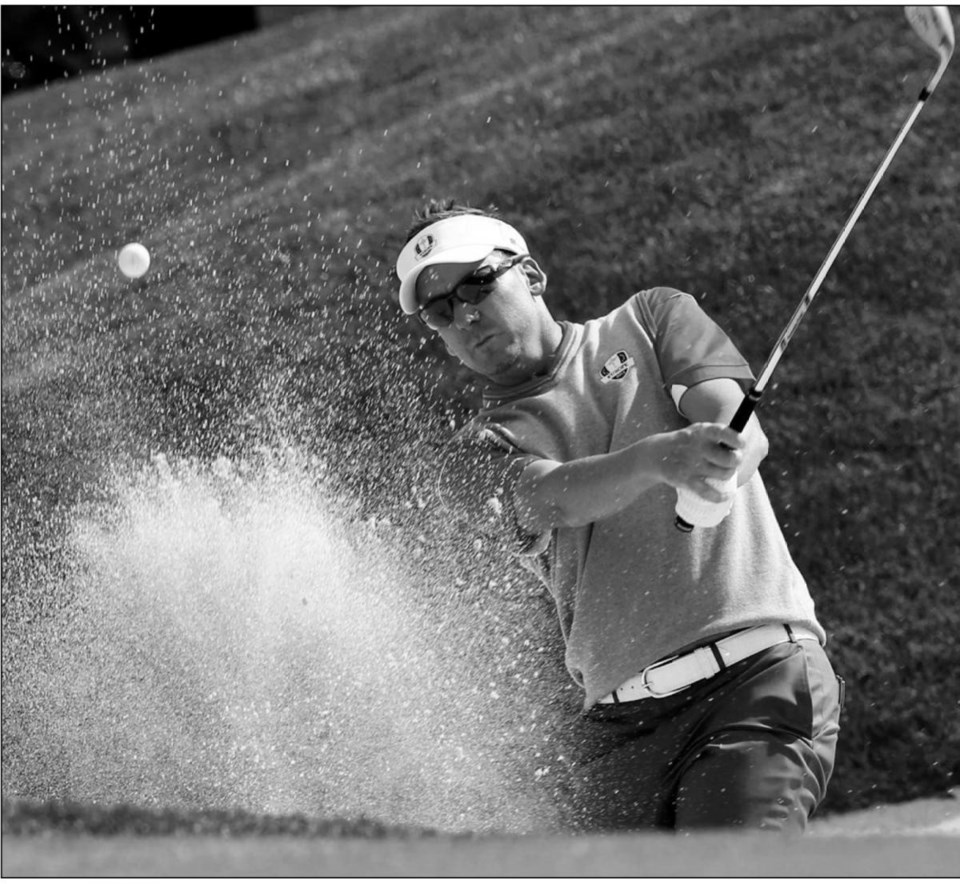The question used to come up every other year when the Americans began looking ahead to the Ryder Cup.
"Who's their Peter Baker?"
Europe always had at least one player the Americans didn't know anything about until losing to him. Baker played in only one Ryder Cup, going 3-1 in 1993 and winning a singles match against Corey Pavin, one of the toughest guys to beat in match play.
Those days are gone. As golf has expanded its borders, the Ryder Cup no longer has any mystery guests.
Eight of the Europeans have joint membership on the PGA Tour, and all eight have homes in Florida. Luke Donald of England, who has the best winning percentage of anyone at Medinah, lives about 45 minutes away on the north side of Chicago. The only Ryder Cup rookie for Europe is Nicolas Colsaerts, the big hitter from Belgium. With the majors and World Golf Championships, he already has played eight times in America this year, and has been invited to play in a PGA Tour event in two weeks in California.
There are no surprises in this Ryder Cup, only stars.
"Both teams are pretty much even and it's going to be a close match," European captain Jose Maria Olazabal said. "I don't see any favourites."
When the matches get under way today at Medinah, they will feature the two strongest teams in the 85-year history of the Ryder Cup. The entire 12-man team for the United States was part of the 30-man field at the Tour Championship last week in Atlanta, joined by five of the seven Europeans who were eligible.
For the first time, the 24 players from both sides are among the top 35 in the world ranking.
Europe has four major champions and four players who have been No. 1 in the world. Three of the four rookies for the U.S. team have won majors in the last 13 months - Keegan Bradley, Bubba Watson and Webb Simpson. The Americans have experience at the top - Tiger Woods, Phil Mickelson and Jim Furyk collectively have played in 21 Ryder Cups and 90 matches. The Europeans have experience where it matters - winning.
It all starts to unfold this morning before a raucous crowd in the Chicago suburbs with a Ryder Cup that has all the trappings of a heavyweight prize fight.
About the only thing missing has been fodder for the tabloids. Familiarity in this event is breeding civility, not contempt.
"This is not a war. It's a golf watch," U.S. captain Davis Love III said. "It's a friendly golf match."
It wasn't always that way, especially when Europe began to win and then the Americans started to care. Seve Ballesteros was the spiritual leader of those European teams, using the Ryder Cup as a chance for them to prove they were not second-class citizens to the PGA Tour. And it didn't help when the marketing slogans promoted a contentious week, whether it was the "War on the Shore" or the "Battle at Brookline."
By the sound of so many players, they might as well be cuddling in Chicago.
"Love Ian Poulter to death," Watson said Wednesday.
Most evident about this shift in the Ryder Cup was Monday afternoon at an airport some 45 minutes away. Olazabal flew over from London with the gold Ryder Cup trophy. Only three players from his team travelled with him, because the rest already were in America.
Paul Lawrie, back after a 13-year absence in the Ryder Cup, remembers 11 players on the plane when they travelled to Boston in 1999. The exception was Jesper Parnevik, who had moved to Florida years earlier.
"I think there's definitely less of a 'them-and-us' type of thing now from everybody's point of view," Lee Westwood said. "The players play with each other a lot more regularly since the start of the World Golf Championships, and the fact that the top worldranked players get pulled together a lot more regularly. There's a feeling that the crowd knows the European players a lot better."
Has it become too friendly?
Not long after the Presidents Cup began in 1994, the International team complained that they should have a home game instead of always playing in America. Fred Couples suggested moving the matches to Lake Nona in Florida, where most of the international players lived. Now, there are five Europeans at Lake Nona - Poulter, Graeme McDowell, Justin Rose and Peter Hanson are permanent residents, and Sergio Garcia also has a home there.
The mere suggestion that the Ryder Cup turns soft was enough to make Poulter shudder.
"It means too much," Poulter said. "It means too much to Europe. It means too much to us for it to ever lose that edge."



